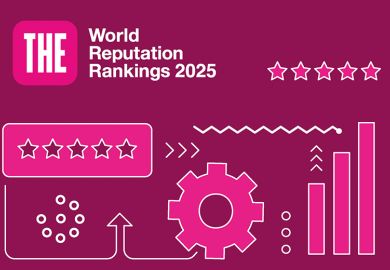On 23 January, three days after being sworn in again as US president, Donald Trump signed an executive order calling for the enforcement of civil rights laws to combat what it terms “illegal” diversity, equity and inclusion (DEI) practices.
The order requires federal agencies to create compliance guidelines for universities, focusing on race-neutral admissions and other DEI practices. It also designates colleges receiving federal financial aid as subcontractors, subjecting their hiring practices to strict anti-discrimination criteria.
Experts have expressed concerns about the chilling effect this order could have on universities. Some institutions are already moving to pre-emptively comply by dismantling or reframing DEI-related programmes (some, such as the University of Texas System, already did so last year). And critics highlight the potential for misinterpretation and misuse of the order’s broad language, predicting lawsuits and further state-level actions to reinforce the federal directive.
What seems certain is that this apparently deliberate attempt to dismantle essential support systems for underrepresented groups is likely to exacerbate inequities within the sector. And what starts in the US often spreads around the globe.
Yet DEI remains vital. For much of the 20th century, for instance, women were excluded – formally or informally – from many professions, under the assumption that they lacked the necessary physical or intellectual capacities. But these perceptions were gradually reshaped by policies aimed at increasing women’s participation, including mandatory quotas and positive discrimination for management positions in EU-listed companies. And evidence emerged that gender-diverse teams often outperform homogeneous ones, particularly in creativity and decision-making, illustrating that equity and excellence can coexist.
In many higher education systems around the world, however, women still face obstacles to fulfilling their full potential. And the same is true of racial and ethnic minorities, LGBTQ+ individuals and colleagues and students with disabilities.
So what can be done to shore up DEI in universities? One possible answer is rankings.
Although most colleagues are not fond of rankings, many have accepted that they have an important role to play in international higher education. Moreover, Times Higher Education’s University Impact Rankings have become a critical forum for universities to show to the world their remarkable contribution to addressing the United Nations’ Sustainable Development Goals (SDGs).
But while these rankings highlight SDGs such as “gender equality” and “decent work”, their methodology averages performance across all 17 SDGs. We need something more specific to DEI.
In recent years, universities worldwide have not been shy to proclaim their dedication to DEI. We can see this in mission statements, principles, policies and outreach initiatives. Nevertheless, the absence of a global benchmark makes it challenging to assess and compare the realities on the ground. A DEI-focused ranking would provide a standardised framework to weigh how universities turn their pledges into measurable outcomes. Meaningful indicators could include access and resources for students from marginalised communities; inclusivity in the curriculum; elimination of achievement gaps; and proportional representation of underrepresented groups across departments and faculties, especially in leadership structures.
Of course, in the current political climate, such a ranking would risk being dismissed or even targeted as ideologically driven. Yet this very resistance could turn it into a rallying point for institutions genuinely committed to fostering inclusive academic environments whatever the political headwinds. By incentivising and celebrating progress in DEI, such a ranking would almost certainly encourage many universities around the world to make this public reaffirmation – even if some US institutions chose not to be part of it for fear of being seen by the Trump administration as too “woke”.
Resources on Equity, diversity and inclusion in higher education
Moreover, by creating a visible global benchmark, a ranking could help normalise DEI priorities, potentially influencing public opinion and policy beyond higher education. And by nurturing a healthy competition, it could become a catalyst for systemic change within the academy. There are clear signs that students and staff in different parts of the world have begun prioritising DEI when choosing institutions. Rankings such as Glassdoor’s “Best Places to Work” already provide a credible signal of a corporation’s favourable employment environment, helping it attract and retain good staff. By becoming recognised DEI leaders, universities could advertise their commitment to reducing inequality in their immediate settings and beyond, whether through community engagement, policy advocacy or groundbreaking research.
While the US government’s fierce turn against DEI is pressuring US corporations to do likewise, other governments around the world have started to emphasise the need for feasible DEI policies and practices. Universities that do well in a DEI ranking would ensure that their opinions on such matters would be heard, and governments and funding bodies could use the ranking as a benchmark for allocating resources. High-ranked universities could also be in a better position to attract corporate partners that share their values, and their graduates could be more attractive to such employers.
A DEI ranking, in short, would constitute a coming of age for world university rankings and a significant step forward for higher education, challenging universities to live up to the values they profess on their websites. Just as the impact ranking did a few years ago, it would redefine excellence in academia, helping to create a more inclusive, equitable and just landscape, both within universities and across the diverse societies they inhabit.
Manuel Barcia is dean of global engagement at the University of Leeds, where Effie Kesidou is chair in the economics of innovation and sustainability.
Register to continue
Why register?
- Registration is free and only takes a moment
- Once registered, you can read 3 articles a month
- Sign up for our newsletter
Subscribe
Or subscribe for unlimited access to:
- Unlimited access to news, views, insights & reviews
- Digital editions
- Digital access to THE’s university and college rankings analysis
Already registered or a current subscriber? Login








